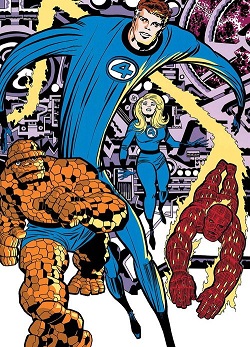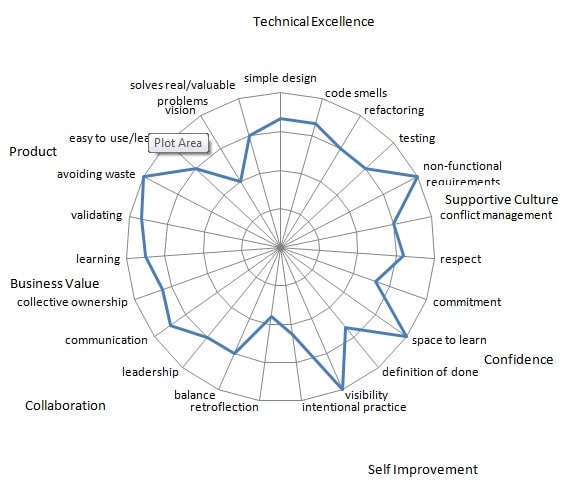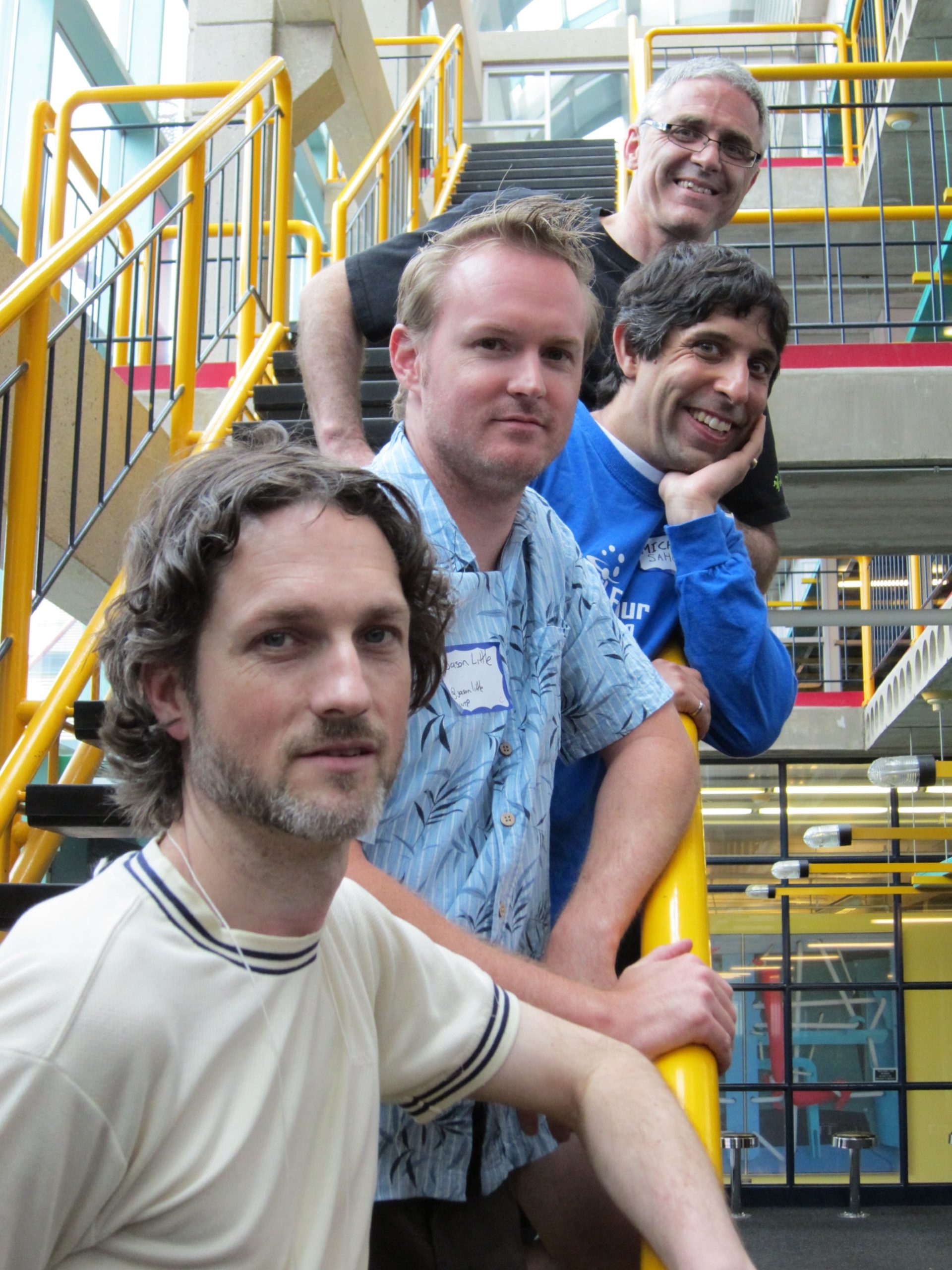 Agile requires a lot of skills. Agile Coaching demands even more. Each individual coach has specific talents, capabilities and passions. Similarly, superheroes have their special powers, areas of strength and weaknesses. Sure the Thing can break down a door, but Mr. Fantastic can slip his arm under and open it without damage or noise. Of course, if “It’s clobberin’ time!” then maybe the Thing is the right superhero for that situation. Superheroes work in challenging environments and often succeed by working with a team that has complementary talents. The same is true for Agile coaches – we can achieve more in a team with other coaches. In this post, I want to touch on the skills needed for Agile coaching and how this relates to learning and working in coaching teams.
Agile requires a lot of skills. Agile Coaching demands even more. Each individual coach has specific talents, capabilities and passions. Similarly, superheroes have their special powers, areas of strength and weaknesses. Sure the Thing can break down a door, but Mr. Fantastic can slip his arm under and open it without damage or noise. Of course, if “It’s clobberin’ time!” then maybe the Thing is the right superhero for that situation. Superheroes work in challenging environments and often succeed by working with a team that has complementary talents. The same is true for Agile coaches – we can achieve more in a team with other coaches. In this post, I want to touch on the skills needed for Agile coaching and how this relates to learning and working in coaching teams.
Skills needed for Agile
The Agile Skills Project is the best reference that I know of. It breaks Agile skills into 7 competence areas: Business Value, Collaboration, Confidence, Product, Self Improvement, Supportive Culture, Technical Excellence. Each competence area has lots of definition (see MindMap). Phew! There’s a lot to know. I just finished my self-assessment (see below) and probably the biggest challenge for me is around how to rate myself around areas for which I am an expert, however, not currently practising (in last 30 days). So if you want to be strict, just shrink the figure – shape won’t change much. Overall, I am not 100% happy with this model. On the other hand there is not better. 
Agile Skills for Coaches
Agile coaches are a mix of consultant, trainer, and coach. I do not know of a list of skills, so I’ll take a stab at it below. The astute reader will be aware that each of these is a profession in its own right.
Consultant
- Systems Thinking
- Root cause analysis
- Client relationship management
- Consultative Selling
- Organizational Change Management
- Navigating politics
Trainer
- Participatory training – including Agile Games, Training from the back of the room
- Speaking skills
- Presentation software such as PowerPoint. Including graphics/photos/diagrams
- Lesson and content preparation
Coach
- Listening
- Effective Questions
- Giving feedback
- Group collaboration
- Retrospectives
- Personality models such as Myers Briggs
- Psychology models such as NLP (Neuro Lingustic Programming)
To quote Socrates – “The more you know, the more you realize you know nothing.” Every Agile coach will have some areas of skills that they have capability and vast areas with limited skills. This is why it is best to work in teams. As well, all the usual reasons for pairing apply here too.
Coaching Circle – the Fantastic Four
 Gerry Kirk created a coaching circle for some of us in Ontario to meet online weekly to share ideas, provide support, debug situations and learn together. Other participants are Declan Whelan and Jason Little (photo from Agile Coach Camp Waterloo). For me the sessions have highlighted that we come from different backgrounds and have different skills and interests. When working together, it is these very differences that add value and allow the sum to be much greater than the parts. Gerry ran an open space workshop on this at Scrum Gathering in Orlando if you would like to learn more – Agile Coaching Circles aka How to avoid feeling isolated and unsupported as a coach [Open Space] Post Script: Selena Delesie and Susan Davis recently joined the coaching circle. Bye bye, Fantastic Four. Hello, X-Men.
Gerry Kirk created a coaching circle for some of us in Ontario to meet online weekly to share ideas, provide support, debug situations and learn together. Other participants are Declan Whelan and Jason Little (photo from Agile Coach Camp Waterloo). For me the sessions have highlighted that we come from different backgrounds and have different skills and interests. When working together, it is these very differences that add value and allow the sum to be much greater than the parts. Gerry ran an open space workshop on this at Scrum Gathering in Orlando if you would like to learn more – Agile Coaching Circles aka How to avoid feeling isolated and unsupported as a coach [Open Space] Post Script: Selena Delesie and Susan Davis recently joined the coaching circle. Bye bye, Fantastic Four. Hello, X-Men. 
Pair Coaching and Coaching Teams
In 2009, I had the fortune of pair-training with Yves Hanoulle at Agile Tour Toronto. He introduced me to the concept of Pair Coaching for which I am very grateful as it has profoundly influenced how I work. (For example, I had two pair-authored sessions at Agile 2010). Earlier this year, I was on a coaching team with Alistair McKinnell and Jason Little. I learned a lot see different skills sets in action. Alistair is a world-class technical architect, consummate consultant and above all test-infected. Although he can do much more than this, he is a great technical coach -someone to sit with developers and testers to get in the trenches and show people how to do quality work. Although Jason knows some technical practices and has worked with Agile Management, he worked with team process (Scrum, Kanban) as well as team dynamics. Me? I love getting people to work together. On this engagement, I worked mostly at the team level and the organizational/inter-departmental level. We did a lot of pairing and the quality of our work was way higher. I know some XP Coaches who think that all Agile coaches need to be developers in order to assist the team in technical practices. For me, it is more important that all relevant skills are manifested in a coaching team and not in a given coach. So be a superhero and work in a coaching team. If you are a coach, work this in to your engagement model. If you are a client, ask for this and join the team as internal coach – you are welcome for sure.


